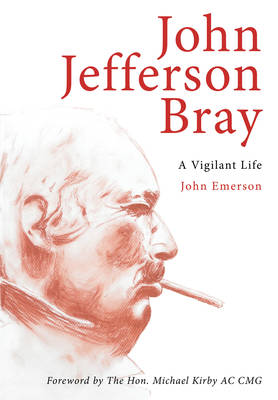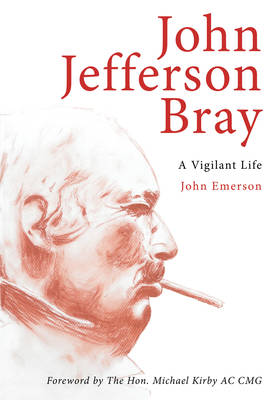
- Retrait gratuit dans votre magasin Club
- 7.000.000 titres dans notre catalogue
- Payer en toute sécurité
- Toujours un magasin près de chez vous
- Retrait gratuit dans votre magasin Club
- 7.000.000 titres dans notre catalogue
- Payer en toute sécurité
- Toujours un magasin près de chez vous
37,95 €
+ 75 points
Description
In March 1967, South Australian Premier Don Dunstan appointed his State's most outstanding barrister as Chief Justice: John Jefferson Bray. In public, Bray's appointment brought barely a ripple, but in the murky urban waters of Adelaide's corridors of power, this decision unleashed waves of outrage and bitter revenge seeking. After his successful defense of Rupert Murdoch's News in 1960 in a seditious libel case, John Jefferson Bray made a powerful enemy who coveted the position that Chief Justice Bray would come to hold; an enemy who would then ruthlessly target Bray's unconventional private life. Conditions would eventually lead to the sacking of a police commissioner, the resignation of Dunstan, and the early retirement of Bray. This is the story of an extraordinarily gifted man whose judicial writings continue to be cited across the Commonwealth and who was determined to defend not only his own natural right to a private life, but that of all citizens. As the Honorable Michael Kirby relates in his Foreword, "the abuse of power, recorded in those pages, stands as a warning to us." *** This biography...unravel(s) the puzzle of how such a gifted legal scholar, advocate and judge could, at the same time, live a life that so outraged the orthodox expectations that ascended upon him. - From the Foreword by the Hon. Michael Kirby AC CMG *** "What a fascinating life! What a gripping book! Yes, I did select the word 'gripping' to describe the life of the Chief Justice of an Australian state, South Australia. Not only by reason of the fact that the highest levels of the police apparatus were apparently involved in opposing his nomination in 1967, but as a result of the maintenance of active surveillance files touching upon his person and activities for years to come. His biographer succeeds in demonstrating that such oversights represent a major threat to judicial independence but the ultimate value of this book is presenting the life and thoughts of a truly great man whose ideas ought to continue to influence contemporary jurisprudence." -- Justice Gilles Renaud, Ontario Court of Justice, Provincial Judges' Journal, Winter 2016 (Series: Biography) [Subject: Biography, Australian Studies, Politics, Legal History]
Spécifications
Parties prenantes
- Auteur(s) :
- Editeur:
Contenu
- Nombre de pages :
- 240
- Langue:
- Anglais
- Collection :
Caractéristiques
- EAN:
- 9781922235619
- Date de parution :
- 06-04-15
- Format:
- Livre broché
- Format numérique:
- Trade paperback (VS)
- Dimensions :
- 165 mm x 235 mm
- Poids :
- 367 g







